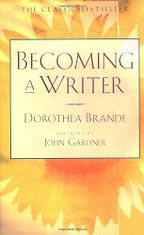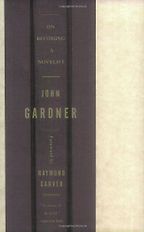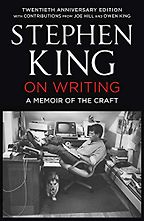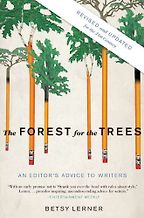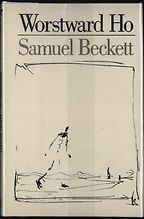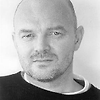How would you describe creative writing?
Creative writing is an academic discipline. I draw a distinction between writing, which is what writers do, and creative writing. I think most people in the UK who teach creative writing have come to it via writing – they are bona fide writers who publish poems and novels and play scripts and the like, and they have found some way of supporting that vocation through having a career in academia. So in teaching aspirant writers how to write they are drawing upon their own experience of working in that medium. They are drawing upon their knowledge of what the problems are and how those problems might be tackled. It’s a practice-based form of learning and teaching.
But because it is in academia there is all this paraphernalia that has to go with it. So you get credits for attending classes. You have to do supporting modules; you have to be assessed. If you are doing an undergraduate degree you have to follow a particular curriculum and only about a quarter of that will be creative writing and the rest will be in the canon of English literature. If you are doing a PhD you have to support whatever the creative element is with a critical element. So there are these ways in which academia disciplines writing and I think of that as Creative Writing with a capital C and a capital W. All of us who teach creative writing are doing it, in a sense, to support our writing, but it is also often at the expense of our writing. We give up quite a lot of time and mental energy and also, I think, imaginative and creative energy to teach.
It is hugely rewarding, engaging with the students, but it is hugely frustrating as well, because the larger part of it is engaging with an institution. I’m sure I’m not alone in being very ambivalent about what I do!
Your first choice is Dorothea Brande’s Becoming a Writer, which for someone writing in 1934 sounds pretty forward thinking.
Because creative writing has now taken off and has become this very widespread academic discipline it is beginning to acquire its own canon of key works and key texts. This is one of the oldest of them. It’s a book that almost anyone who teaches creative writing will have read. They will probably have read it because some fundamentals are explained and I think the most important one is Brande’s sense of the creative writer being comprised of two people. One of them is the artist and the other is the critic.
Actually, Malcolm Bradbury who taught me at UEA, wrote the foreword to my edition of Becoming a Writer, and he talks about how Dorothea Brande was writing this book ‘in Freudian times’ – the 1930s in the States. And she does have this very Freudian idea of the writer as comprised of a child artist on the one hand, who is associated with spontaneity, unconscious processes, while on the other side there is the adult critic making very careful discriminations.
And did she think the adult critic hindered the child artist?
No. Her point is that the two have to work in harmony and in some way the writer has to achieve an effective balance between the two, which is often taken to mean that you allow the artist child free rein in the morning. So you just pour stuff on to the page in the morning when you are closest to the condition of sleep. The dream state for the writer is the one that is closest to the unconscious. And then in the afternoon you come back to your morning’s work with your critical head on and you consciously and objectively edit it. Lots of how-to-write books encourage writers to do it that way. It is also possible that you can just pour stuff on to the page for days on end as long as you come back to it eventually with a critical eye.
Get the weekly Five Books newsletter
There are two ways in which you can start to get that wrong and produce bad work. One is where you don’t allow the critic in at all. And so it is just a constant outpouring of unmediated automatic writing, which can become a kind of verbal diarrhoea. And the other side of that is where you allow the critic too much authority and the critic becomes like a bad dad who finds fault with everything and doesn’t allow the child to produce anything. And that results in a sort of self-sabotaging perfectionism, which I have suffered from. I got very blocked, and I read this book and it unblocked me.
Good! Your next book, John Gardner’s On Becoming a Novelist, is described as comfort food for the aspiring novelist.
This is another one of the classics. He was quite a successful novelist in the States, but possibly an even more successful teacher of creative writing. The short story writer and poet Raymond Carver, for instance, was one of his students. And he died young in a motorcycle accident when he was 49. There are two classic works by him. One is this book, On Becoming a Novelist, and the other is The Art of Fiction: Notes on Craft for Young Writers. They were both put together from his teaching notes after he died.
On Becoming a Novelist is the more succinct and, I think, is the better of the two. He talks about automatic writing and the idea, just like Dorothea Brande, of the artist being comprised of two people. But his key idea is the notion of the vivid and continuous dream. He suggests that when we read a novel we submit to the logic of that novel in the same way as we might submit to the logic of a dream – we sink into it, and clearly the events that occur could not exist outside the imagination.
What makes student writing in particular go wrong is when it draws attention to itself, either through bad writing or over-elaborate writing. He suggests that these faults in the aspirant writer alert the reader to the fact that they are reading a fiction and it is a bit like giving someone who is dreaming a nudge. It jolts them out of the dream. So he proposes that the student writer should try to create a dream state in the reader that is vivid and appeals to all the senses and is continuous. What you mustn’t do is alert the reader to the fact that they are reading a fiction.
It is a very good piece of advice for writers starting out but it is ultimately very limiting. It rules out all the great works of modernism and post-modernism, anything which is linguistically experimental. It rules out anything which draws attention to the words as words on a page. It’s a piece of advice which really applies to the writing of realist fiction, but is a very good place from which to begin.
And then people can move on.
Yes.
I never would have expected the master of terror Stephen King to write a book about writing. But your next choice, On Writing, is more of an autobiography.
Yes. It is a surprise to a lot of people that this book is so widely read on university campuses and so widely recommended by teachers of writing. Students love it. It’s bracing: there’s no nonsense. He says somewhere in the foreword or preface that it is a short book because most books are filled with bullshit and he is determined not to offer bullshit but to tell it like it is.
It is autobiographical. It describes his struggle to emerge from his addictions – to alcohol and drugs – and he talks about how he managed to pull himself and his family out of poverty and the dead end into which he had taken them. He comes from a very disadvantaged background and through sheer hard work and determination he becomes this worldwide bestselling author. This is partly because of his idea of the creative muse. Most people think of this as some sprite or fairy that is usually feminine and flutters about your head offering inspiration. His idea of the muse is ‘a basement guy’, as he calls him, who is grumpy and turns up smoking a cigar. You have to be down in the basement every day clocking in to do your shift if you want to meet the basement guy.
Stephen King has this attitude that if you are going to be a writer you need to keep going and accept that quite a lot of what you produce is going to be rubbish and then you are going to revise it and keep working at it.
Do you agree with him?
Yes, I do. I think he talks an awful lot of sense. There is this question which continues to be asked of people who teach creative writing, even though it has been taught in the States for over 100 years and in the UK for over 40 years. We keep being asked, ‘Can writing be taught?’ And King says it is impossible to make a competent writer out of a bad writer, and equally impossible to make a great writer out of a good one, but what is possible, with lots of hard work and dedication and timely help, is to make a good writer out of a merely competent one. And his book is partly intended to address that, to help competent writers to become good ones. It is inspirational because he had no sense of entitlement. He is not a bookish person and yet he becomes this figurehead.
He sounds inspirational. Your next book, Betsy Lerner’s The Forest for the Trees, looks at things from the editor’s point of view.
Yes, she was an editor at several major American publishing houses, such as Simon & Schuster. She went on to become an agent, and also did an MFA in poetry before that, so she came through the US creative writing process and understands where many writers are coming from.
The book is divided into two halves. In the second half she describes the process that goes from the completion of the author’s manuscript to submitting it to agents and editors. She explains what goes on at the agent’s offices and the publisher’s offices. She talks about the drawing up of contracts, negotiating advances and royalties. So she takes the manuscript from the author’s hands, all the way through the publishing process to its appearance in bookshops. She describes that from an insider’s point of view, which is hugely interesting.
But the reason I like this book is for the first half of it, which is very different. Here she offers six chapters, each of which is a character sketch of a different type of author. She has met each of them and so although she doesn’t mention names you feel she is revealing something to you about authors whose books you may have read. She describes six classic personality types. She has the ambivalent writer, the natural, the wicked child, the self-promoter, the neurotic and a chapter called ‘Touching Fire’, which is about the addictive and the mentally unstable.
It is very entertaining and informative and it is also hugely affirming. I identified myself with each one of the six types. There is a bit in each of them that sounded just like me. And I thought, well if they can get published so can I. You do often worry that you are an impostor, that you are only pretending to be a writer and that real writers are a completely different breed, but actually this book shows they can be just like you.
Your final choice is Worstward Ho by Samuel Beckett.
This is a tiny book – it is only about 40 pages and it has got these massive white margins and really large type. I haven’t counted, but I would guess it is only about two to three thousand words and it is dressed up as a novella when it is really only a short story. On the first page there is this riff: ‘Ever tried. Ever failed. No matter. Try again. Fail again. Fail better.’
Five Books interviews are expensive to produce. If you're enjoying this interview, please support us by donating a small amount.
When I read this I thought I had discovered a slogan for the classroom that I could share with my students. I want to encourage them to make mistakes and not to be perfectionists, not to feel that everything they do has to be of publishable standard. The whole point of doing a course, especially a creative writing MA and attending workshops, is that you can treat the course as a sandpit. You go in there, you try things out which otherwise you wouldn’t try, and then you submit it to the scrutiny of your classmates and you get feedback. Inevitably there will be things that don’t work and your classmates will help you to identify those so that you can take it away and redraft it – you can try again. And inevitably you are going to fail again because any artistic endeavour is doomed to failure because the achievement can never match the ambition. That’s why artists keep producing their art and writers keep writing, because the thing you did last just didn’t quite satisfy you, just wasn’t quite right. And you keep going and trying to improve on that.
But why, when so much of it is about failing – failing to get published, failing to be satisfied, failing to be inspired – do writers carry on?
I have a really good quote from Joseph Conrad in which he says the sitting down is all. He spends eight hours at his desk, trying to write, failing to write, foaming at the mouth, and in the end wanting to hit his head on the wall but refraining from that for fear of alarming his wife!
It’s a familiar situation; lots of writers will have been there. For me it is a kind of obsessive-compulsive disorder. It is something I have to keep returning to. I have to keep going back to the sentences, trying to get them right. Trying to line them up correctly. I can’t let them go. It is endlessly frustrating because they are never quite right.
You have published four books. Are you happy with them?
Reasonably happy. Once they are done and gone I can relax and feel a little bit proud of them. But at the time I just experience agonies. It takes me ages. It takes me four or five years to finish a novel partly because I always find distractions – like working in academia – something that will keep me away from the writing, which is equally as unrewarding as it is rewarding!
Five Books aims to keep its book recommendations and interviews up to date. If you are the interviewee and would like to update your choice of books (or even just what you say about them) please email us at editor@fivebooks.com
